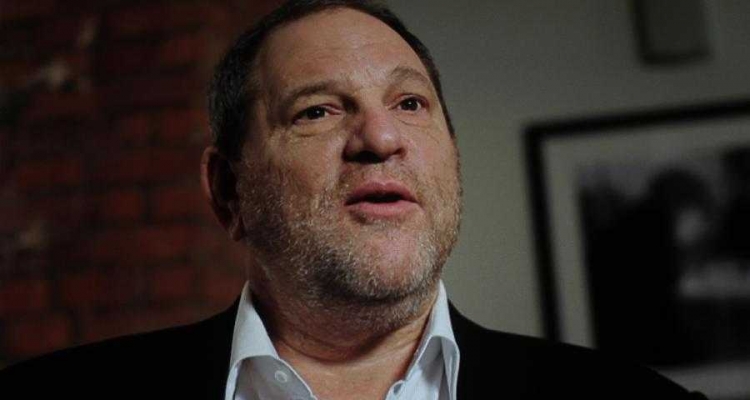“Everybody-fucking-knew” screenwriter Scott Rosenberg wrote about the Harvey Weinstein scandal. Quentin Tarantino says he knew, while Matt Damon revealed that while he knew Weinstein had a reputation, he didn’t know the full extent of the mogul’s behavior. The chatter was there for decades, but the victims’ ability to speak out about what they encountered has been blocked by the onerous non-disclosure agreements those who were courageous enough to seek legal action were forced to sign.
Earlier this month, The New York Times reported that Weinstein has a long history of settlements behind him, paid out to staffers and even stars like Rose McGowan, who stood up to his harassment and assault. One of the those named in the article was Zelda Perkins, who worked in Miramax‘s London office during the ’90s as his assistant. Now, she’s sharing her experience with Weinstein and talking about the legal documents that have kept her quiet for years.
Speaking with the Financial Times, Perkins recounts that she endured Weinstein’s advances and harassment (the now familiar tale involving offers of massages, walking around naked, etc), but she finally took the step to break ties with Miramax and seek legal action when a colleague was assaulted at the Venice Film Festival.
“She was white as a sheet and shaking and in a very bad emotional state. She told me something terrible had happened. She was in shock and crying and finding it very hard to talk. I was furious, deeply upset and very shocked. I said: ‘We need to go to the police’ but she was too distressed. Neither of us knew what to do in a foreign environment,” Perkins said.
Eventually, Perkins and her colleague told their story to the lawyers at Simons Muirhead & Burton, and the process of drawing up the non-disclosure agreement for a £250,000 settlement was started. The experience was overwhelming for Perkins, then just 24 years old, who according to the terms of the NDA, wasn’t even allowed to have her own, complete copy. Instead, she just received some pages detailing her responsibilities to Miramax, and vice versa.
Even more, the settlement states that if Perkins was ever called to court to give evidence against Weinstein, not only does she have to alert his legal team, “[she] will use all reasonable endeavours to limit the scope of the disclosure as far as possible.”
It doesn’t take much to see how hard Weinstein’s lawyers worked to ensure that a power imbalance remained even after a settlement was signed, and Perkins believes this is another element of how the power structure that enables this kind of abuse to continue, needs to change.
“I want to call into question the legitimacy of agreements where the inequality of power is so stark and relies on money rather than morality,” she said. “I want other women who have been sidelined and who aren’t being allowed to own their own history or their trauma to be able to discuss what they have suffered. I want them to see that the sky won’t fall in.”
As Brit Marling outlines in a must-read piece for The Atlantic — in which she reveals she was also victimized by Weinstein — everything that we have seen made public in the past few weeks, is part of the larger fabric of historic economic and systemic oppression against women:
It’s important, too, to keep in mind where this power imbalance comes from. In the U.S., women were only allowed to have credit cards in their own names as of 43 years ago. Men had a two-decade head start (the credit card was invented in 1950). In the 1960s a woman needed to bring a man along to cosign any credit application. It’s stunning how recently women were afforded no financial autonomy. This is, of course, connected to the fact that women didn’t have bodily autonomy either. A woman’s husband could beat her or have sex with her without her consent in this country with no real legal recourse until the 1970s.
For me, this all distills down to the following: The things that happen in hotel rooms and board rooms all over the world (and in every industry) between women seeking employment or trying to keep employment and men holding the power to grant it or take it away exist in a gray zone where words like “consent” cannot fully capture the complexity of the encounter. Because consent is a function of power. You have to have a modicum of power to give it. In many cases women do not have that power because their livelihood is in jeopardy and because they are the gender that is oppressed by a daily, invisible war waged against all that is feminine—women and humans who behave or dress or think or feel or look feminine.
It’s a powerful moment when courageous people begin speaking about how they have been harmed, which is a deeply difficult thing to do because it means wading through a swamp of shame you’ve been made to feel. I am inspired by them all. We should let their strength guide our way forward, which means beginning a much larger conversation about the role economic inequality often plays in rape culture.
As Marling emphasizes, the issues that the Weinstein story have opened the box on, are all part of a complex web of sex, politics, and economics. The producer may be on the outs with Hollywood, but there is still much work in disassembling the foundation upon which all of this is built upon.

